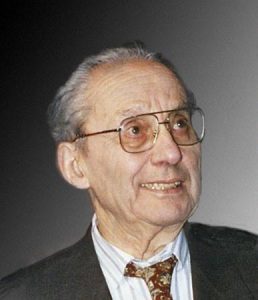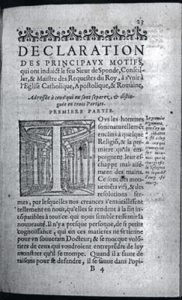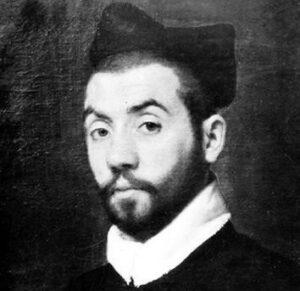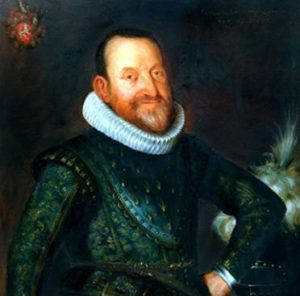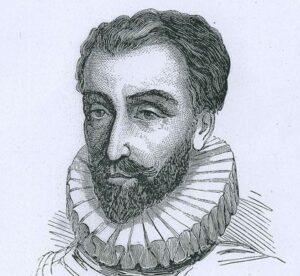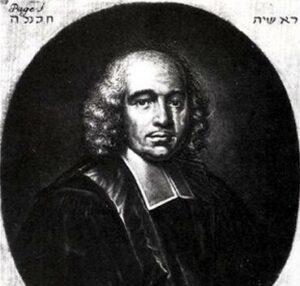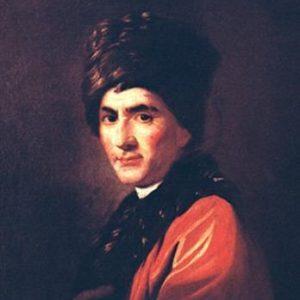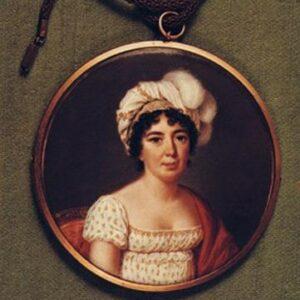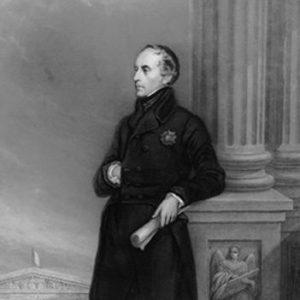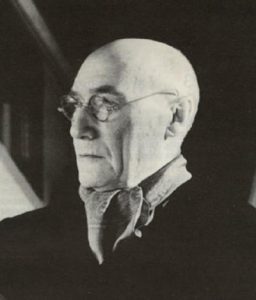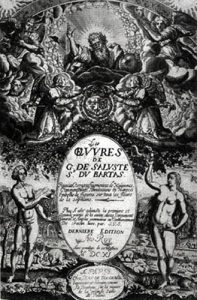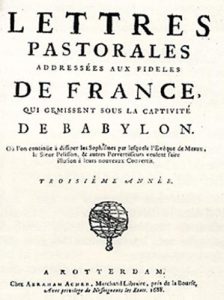Secular and religious poetry in the 16th century
Several protestant educated poets, such as Guillaume du Bartas (1544-1590) and Jean de Sponde (1557-1595), but mainly Clément Marot (1496-1544),belong the new fruitful generation of court poets around Marguerite de Navarre. But as soon as the Reformation was implanted in France, their inspiration became deeply religious and they expressed their faith in spite of the hardships they were to bear. The translation of psalms by Clément Marot and Théodore de Bèze was a significant example.
The horrors during the Wars of Religion inspired a genius, the poet Agrippa d’Aubigné (1552-1360). He was a true Renaissance man blessed with gifts, reformed faithful and righteous. When he was 26 he wrote an unmatched work, the Tragiques partly an epic, a satire, and a mystic poem towering over the whole literary production of its time.
At the turn of the century Olivier de Serres (1539-1619), an early hardcore ecologist, contributed to human sciences with his treatise entitled Théatre d’agriculture et mesnage des champs (Agricultural organisation and management of the fields).
The 17th century was the time of the Edict of Nantes an its Revocation
Three renowned diarists marked the end of the 16th and the beginning of the 17 century, namely François de la Noue (1531-1591) a great captain who described the events he took part in and drew a moral message from them in his Discours politiques et militaries (Political and military speeches) ; Maximilien de Béthune, duc de Sully (1560-1641) a companion and minister of Henri IV whose memories were entitled Economie royale (Royal economy) ; and Henri de Rohan, a general and leader of the protestant party after the Admiral de Coligny.
Among the diarists Gédéon Tallement des Réaux (1619-1690) should be mentioned for his Historiettes (small stories) which are colourful and truthful accounts of the society of his time told by a gifted storyteller.
As the Revocation and the persecutions drew nearer, the rare publications of the protestants became fewer and stifled.
The 18th century
After the Revocation and throughout the 18th century, the protestant influence came from Refuge countries.
Printed in the Netherlands dissident literature was smuggled into France. The two main authors were Pierre Jurieu (1637-1713) and Pierre Bayle (1647-1706). Pierre Jurieu was a defender of the rights of nations and was best known for his Lettres pastoraels aux fidèles qui gémisent sous la captivité de Babylone (1686-1689) (Pastoral letters to the faithful who moan in Babylon’s captivity). Pierre Bayle, a theologian and philosopher, is known for his fight for freedom of thought and against intolerance and dogmatism. He was the author of the well-known Dictionnaire historique et critique (1696-1697) (historical and critical dictionary) that led the way to the philosophy of Enlightment.
Jean-Jacques Rousseau (1712-1778) was born in Geneva of Huguenot ancestry and raised as a Huguenot, and was a typical protestant thinker. His main religious convictions can be found in his Profession de foi du vicaire Savoyard (The Savoyard vicar’s profession of faith), Volume IV of the Emile, in which he advocates heart felt religion. In the Lettres écrites de la montagne (letters written in the mountain), he initiated the notion of free enquiry, so dear to protestant specificity.
The 19th century
At the end of the 18th century two personalities, namely Germaine de Staël (1766-1817) and Benjamin Constant (1767-1830) expressed in their political message the Calvinist respect for individual freedom and advocated resistance to absolute power. Adolphe, the hero of Benjamin Constant’s well-known novel professes a kind of clear-sightedness and virtue attributable to his creator’s protestant education.
Fançois Guizot (1787-1874), a politician and historian, should also be mentioned as a defender of a liberal monarchical system. He was mainly known for the law on freedom and the organisation of primary education passed thanks to him (loi Guizot, 1833).
The 20th century
The 20th century abounded in writers influenced by their protestant education or claiming kinship to the reformed faith. It would be impossible to list them all here, but let us mention Pierre Loti (1850-1923) and Jacques Chardonne (1884-1968).
André Gide (1869-1951) brought up in the protestant faith, was one of the major writers in the first half of the century. In a number of his novels and essays unfailing traces of Calvinism are present.
Along with the writer Jean Sclumberger (1877-1968), Guizot’s great grandson, Gide founded the Nouvelle Revue Française (New French Magazine).
Among the many philosophers, historians, contemporary novelists, we should mention André Chamson (1900-1983) whose novels are characterised by warm-heartedness and strength ; Roland Barthes (1915-1980) a reviewer and semiologist deeply influenced the trends of thought and literary criticism ; and finally the philosopher and great Christian thinker Paul-Ricoeur (1913-2005).





